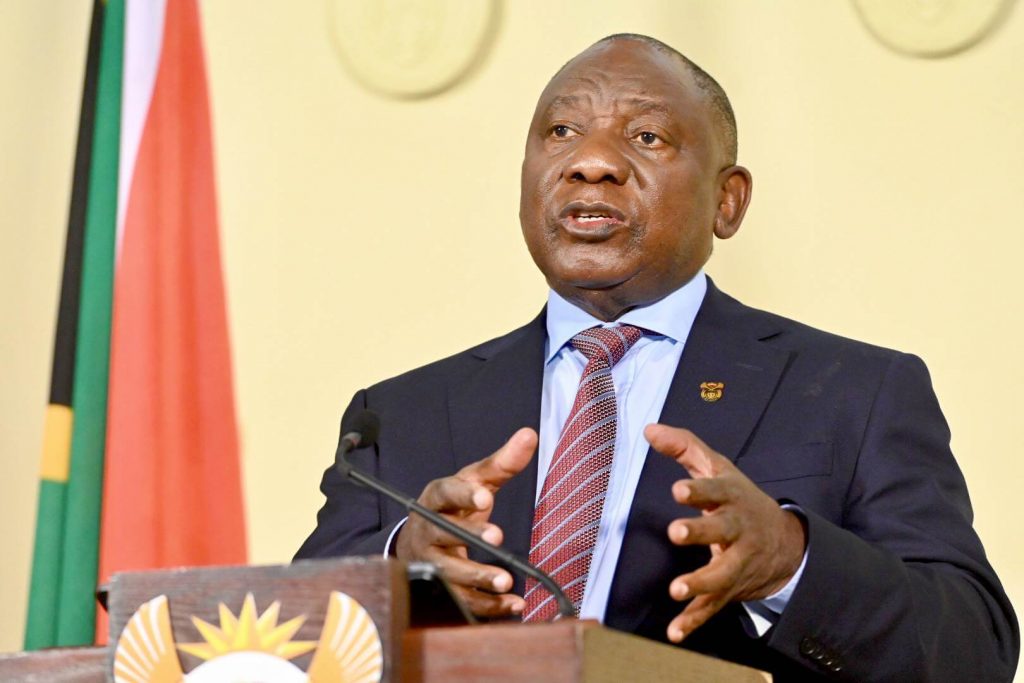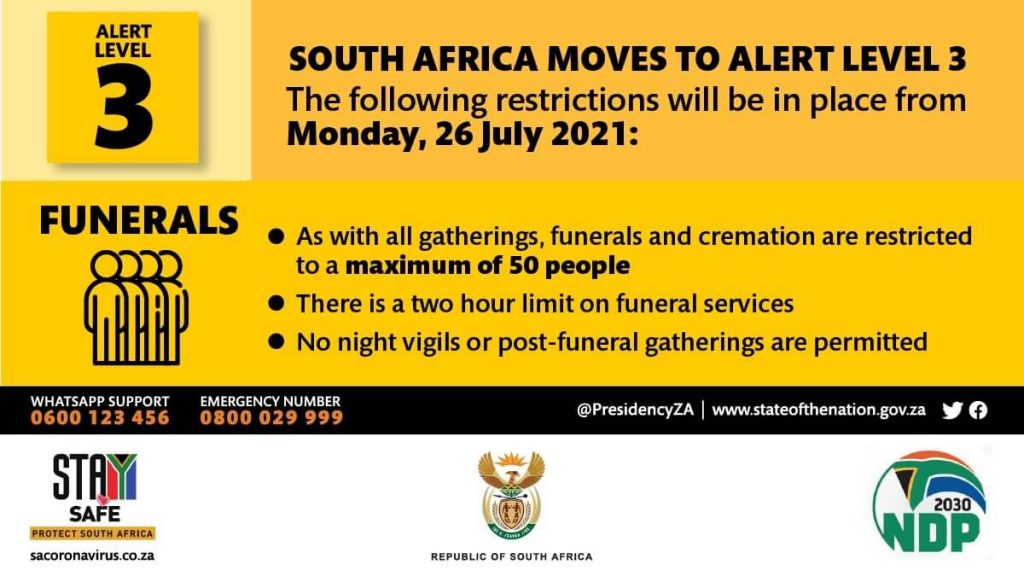Cyril Ramaphosa last night announced the country’s return to Adjusted Alert Level 3 following the slight decline in daily Covid-19 infections. But he warned that there are still areas that pose risks of further spread of infections driven specifically by the highly transmissible Delta variant.
He said in the last two weeks Gauteng – which has been the hotbed of third wave -has recorded a steady decline in infections, while in provinces such as the Western Cape, Eastern Cape and KwaZulu-Natal infections continue to rise. The Northern Cape, which has been relatively stability, is also showing worrying surge of infections.

Beyond the peak
“The latest figures suggest that we have largely passed the peak of the third wave of infections, although there are areas in the country where we still need to be concerned because the rates of infection have not yet shown signs of decline,” said President Ramaphosa.
He said despite the recent outbreak of the looting and destruction of the malls and infrastructure in KwaZulu-Natal and Gauteng, “the coronavirus pandemic remains the greatest threat to the lives and health of our people and to the recovery and transformation of our economy”.

Implications of the regulations
In terms of the Adjusted Alert Level 3 regulations, it means that:
- The hours of curfew will stay the same, starting at 10pm and end at 4am.
- Interprovincial travel for leisure may resume.
- Non-essential establishments like restaurants, taverns, bars and fitness centres may be opened. These establishments will however need to close by 9pm to allow their employees and patrons to travel home before the start of the curfew.
- Gatherings will be allowed but will be limited to a maximum of 50 people indoors and 100 people outdoors.
- Where the venue is too small to accommodate these numbers with appropriate social distancing, then no more than 50 per cent of the capacity of the venue may be used.
- Gatherings include religious services, political events and social gatherings.
- The limits on venue capacity also apply to restaurants, gyms, fitness centres, bars, taverns and similar places.
- Attendance at funerals and cremations may not exceed 50 people and all social distancing and health protocols must be observed.
- Night vigils and after-funeral gatherings are still not allowed.
- The sale of alcohol from retail outlets for off-site consumption will be permitted between 10am and 6pm from Monday to Thursday.
- Alcohol sales for on-site consumption will be permitted as per licence conditions up to 8pm.
- Schools will re-open tomorrow, Monday the 26th of July, according to strict health protocols and other measures announced by the Minister of Basic Education.
Non-pharmaceutical measures
But President Ramaphosa was quick to remind the citizens that it remains “mandatory to wear a face mask that always covers their nose and mouth at all times when in public spaces”.
He said the owners and managers of public buildings, centres, shops, restaurants, taxis and buses bear responsibility to ensure that people on their premises or in their vehicles wear masks. In addition, they should also ensure that “the appropriate social distancing measures are in place and are adhered to”.
Ramaphosa said: “It is important to remember that it is a criminal offence if the number of people on these premises exceeds the maximum number of customers or employees allowed. As we ease restrictions, we must remember that infections remain high and that we need to continue to exercise caution.”
Vaccine update
He also updated the country about the government’s vaccination campaign saying in the last week South Africa “has made huge strides” and that government “will substantially increase the rate of vaccination”.
“We are now administering more than 240,000 vaccines every week day. A month ago, this figure stood at around 100,000 vaccines per week day. As a result, we have now administered more than 6.3 million vaccines, with over 10 per cent of our population having received a vaccine dose,” said President Ramaphosa.
People between the ages of 18 and 34 will be allowed to be vaccinated from 1st of September 2021, said Ramaphosa, adding the country is scheduled to receive around 31 million additional doses from Pfizer and Johnson & Johnson.
Vaccine for Africa
Other positive developments on the vaccine front include the manufacturing of vaccines by the Gqeberha-based Aspen solely for the African continent. Recently, the Biovac Institute in Cape Town was appointed to manufacture the Pfizer-BioNTech Covid-19 vaccine for distribution within Africa.







